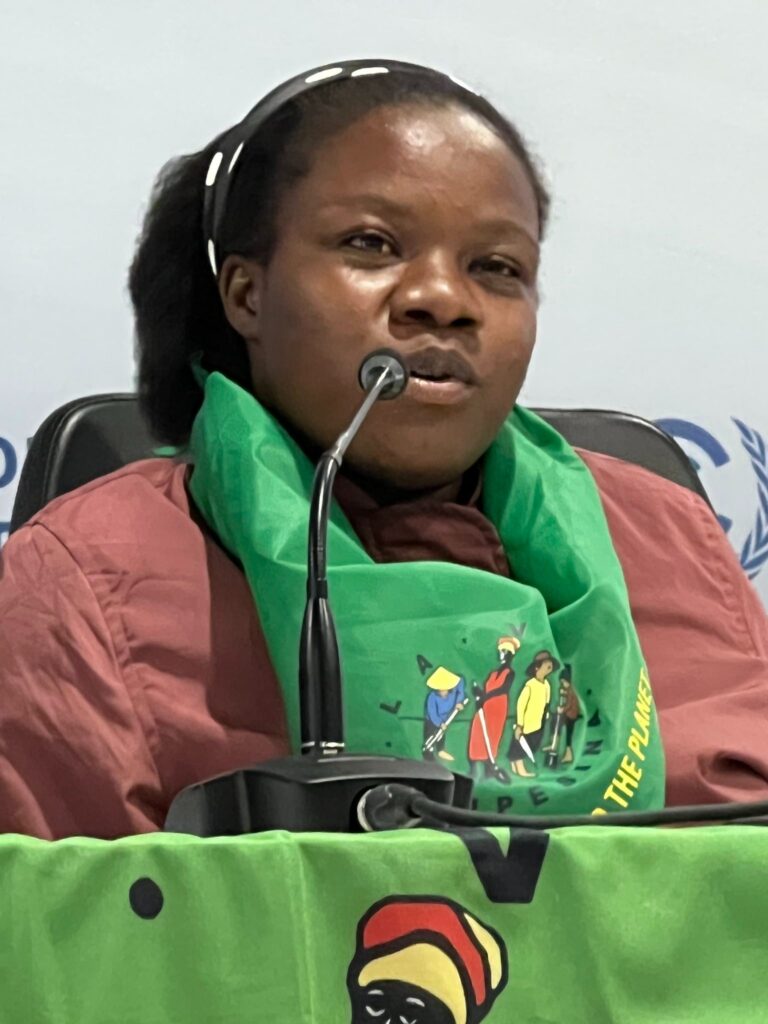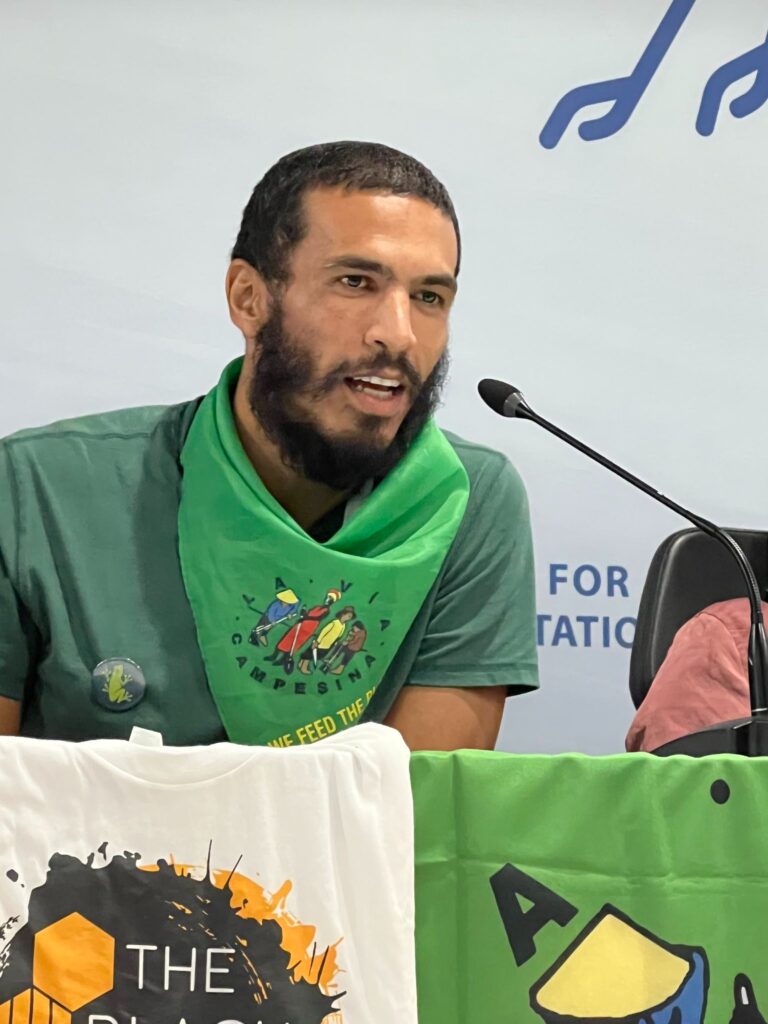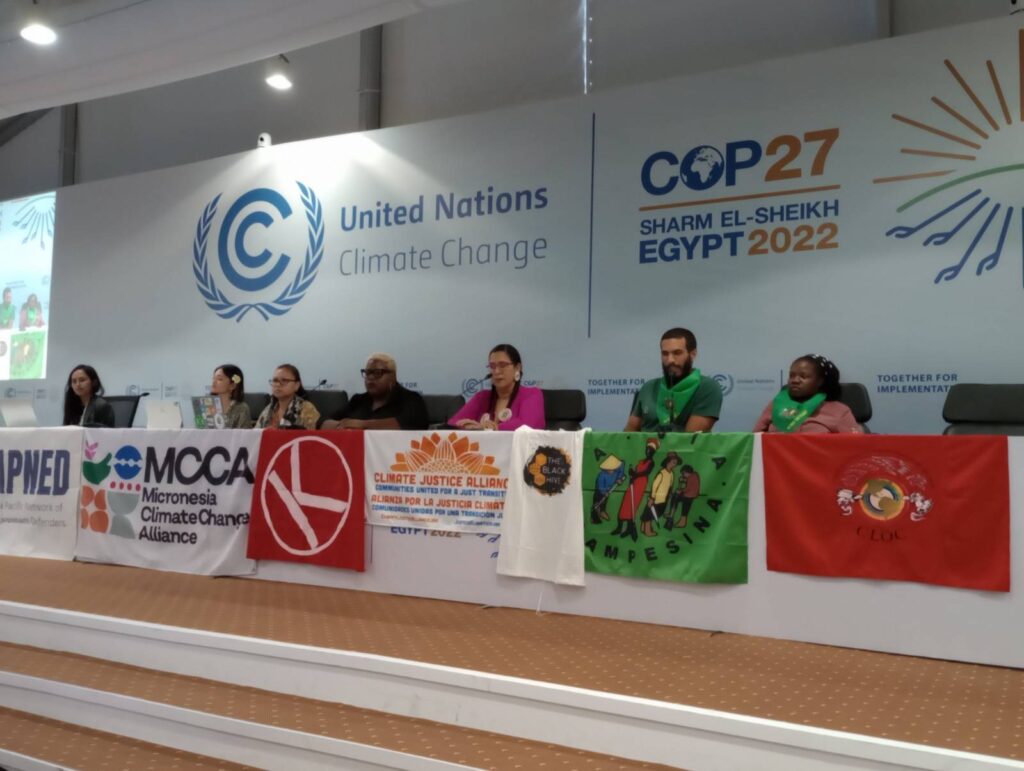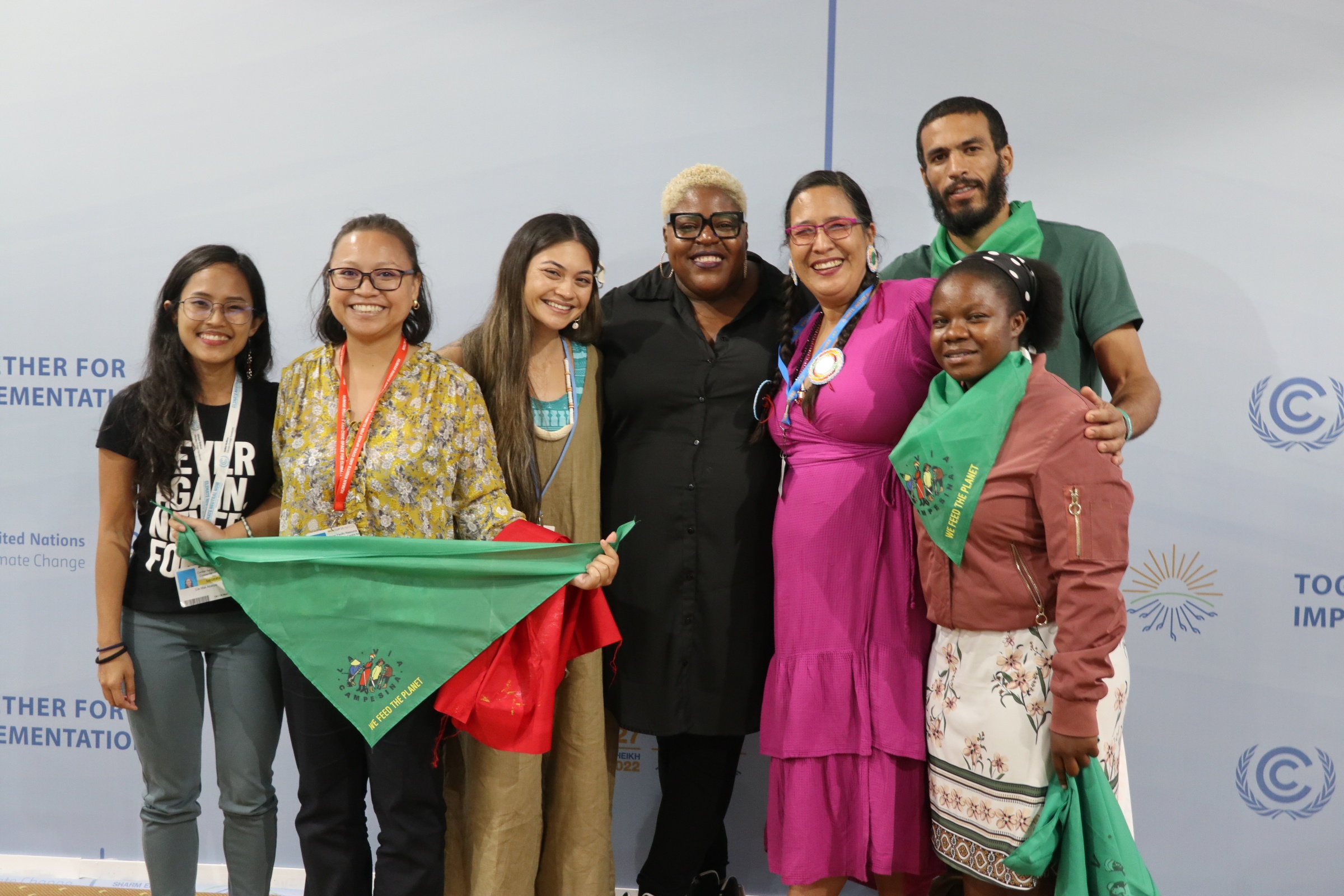Sharm el Sheikh, Egypt – La Vía Campesina has long been known for organizing parallel spaces alongside key political moments in which governments, corporations, and intergovernmental institutions make decisions about land and territory – all without any real participation of those who live and work there. In previous COPs, these outside spaces have taken the form of people’s summits hosted by local peasant movements. There, Indigenous peoples have exchanged seeds with one another, and peasant leaders from all corners of the globe have held lively educational forums for the general public.
But this COP in Egypt has been very different. Social justice movements have been forced to shift their primary focus to a strategic inside strategy because of the political conditions imposed by the Egyptian authorities. And even if there are no public places for us to wave our flags and raise our voices, we are here, representing the demands of our peasant communities who are living on the frontlines of the climate crisis in different parts of the world. La Vía Campesina has three overlapping objectives for COP27: to study, to mobilize, and to practice international solidarity.
A central component of international solidarity that we have put into action this week has been holding multiple speaking events with our social movement allies inside the COP. On 16 November, we joined the Indigenous Environmental Network, the Movement for Black Lives, the Climate Justice Alliance, the Asia Pacific Network of Environmental Defenders, and the Micronesia Climate Change Alliance to speak truth to power on a panel about the importance of our frontline solutions in confronting the climate crisis.

La Vía Campesina was represented by Organización Boricuá de Agricultura Ecológica de Puerto Rico (Boricuá) and Zimbabwe Small Holder Organic Farmers’ Forum (ZIMSOFF). “We know from experience that we can create communities that are resilient in the face of the climate crisis,” said ZIMSOFF’s Chengeto Sandra Muzira. She elaborated: “Using and saving Indigenous seeds at the household level allows us to break up cycles of dependency. By ensuring that every family has a seed bank and access to traditional knowledge, we are rejecting the GMOs that have repeatedly failed us and the land grabs that continually threaten us.”

Javier Andrades of Boricuá explained that in the Puerto Rican context, disaster capitalism, colonialism, and the climate crisis have disrupted small-scale farming and fishing food systems. Climate change has lengthened and strengthened the Caribbean’s hurricane season, and industrial agriculture has destroyed fragile island ecosystems. But Boricuá is fighting back through agroecology. “Those who promote false solutions don’t want people to see that peasants have fed humanity for generations,” Javier said. “Agroecology is hard work, and it is a lifestyle,” he offered, emphasizing that phasing out conventional farming is a cross-generational and cross-community project. “It is incredible to be part of a global movement that empowers the people to feed the people.”
Frontline solutions are custom designed by communities for communities. These real solutions are linked together by a commitment to food sovereignty and ecological justice that is grounded in system change – and we must promote this change whenever and wherever possible, from both outside and from within.


